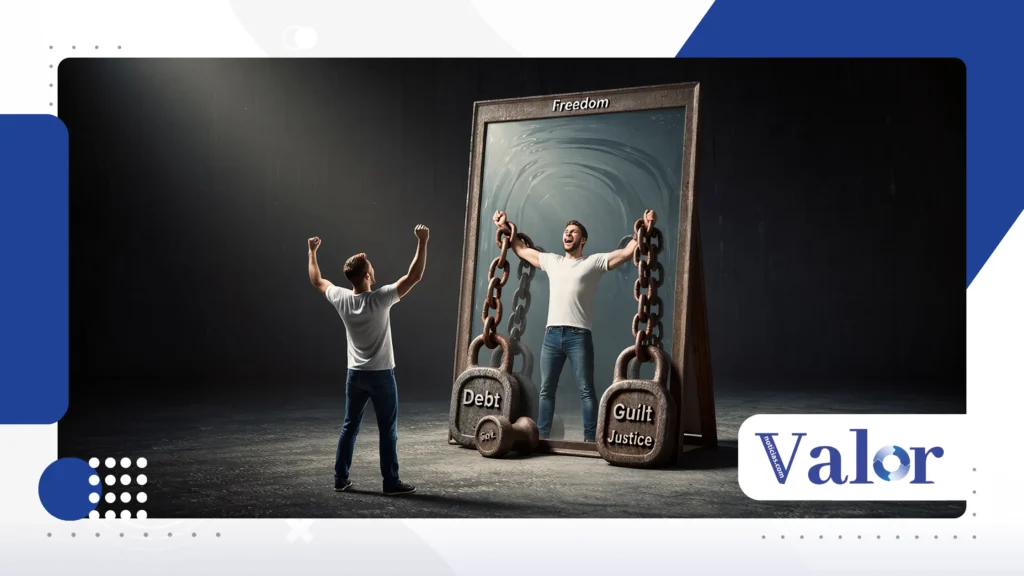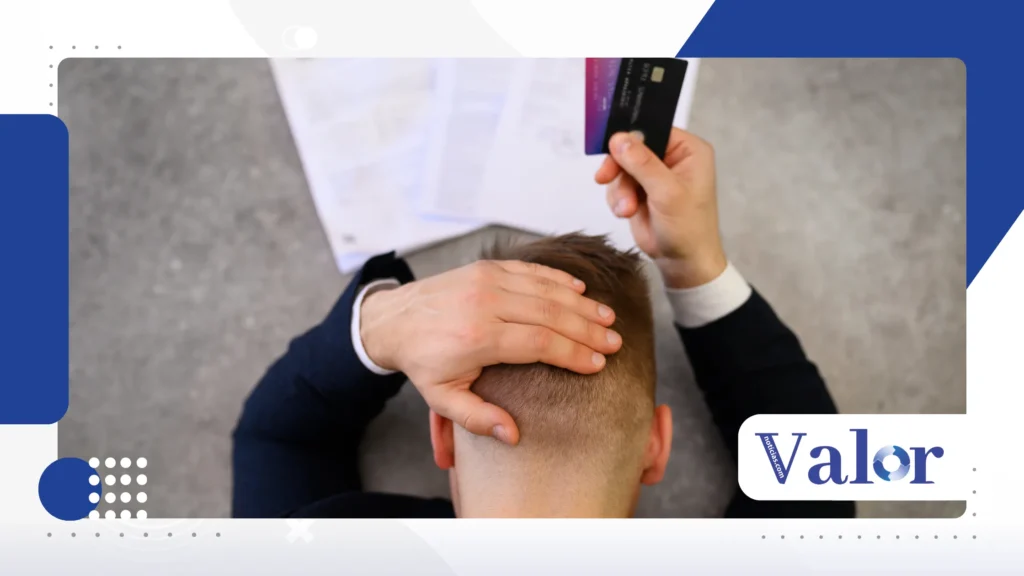Debt renegotiation: legal instruments, SPC/Serasa, and possible agreements

The journey to the debt renegotiation It is a crucial step, requiring knowledge of legal channels, platforms such as SPC/Serasa, and the best strategies for viable agreements.
Advertisements
This detailed guide offers a modern, humanized approach packed with up-to-date information to help you regain control of your finances with intelligence and security.
Summary
- The Current Default Scenario: Why Negotiate?
- The Over-Indebtedness Law: What is the Current Legal Instrument?
- How Can the SPC and Serasa Platforms Help with Negotiation?
- Smart Strategies for a Viable Debt Agreement.
- Frequently Asked Questions about Debt Renegotiation.
The Current Default Scenario: Why Negotiate?
The number of Brazilians with a negative credit rating continues to be a major social and economic challenge in 2025.
In June of this year, the country registered an alarming total of 77.8 million defaulters, according to Serasa's Default Map.
These data demonstrate the financial fragility of millions of families, who face high interest rates and the rising cost of living.
Understanding the urgency of this situation is fundamental to motivating the search for debt renegotiation proactively.
Household debt remains high, reflecting inflationary pressure and the difficulty in obtaining more affordable credit.
Therefore, the debt renegotiation It is not just an option, but a strategic necessity for financial health.
September 2025 saw defaults reach 30.5% of families, marking a historic record, as reported by Veja magazine, highlighting the growing vulnerability.
Credit cards and store credit cards remain the main culprits that push consumers into the red.
Faced with such a challenging panorama, postponing the debt renegotiation It just means allowing interest and penalties to snowball into an uncontrollable problem. Take control.
| Defaulter Profile (June/2025 – Serasa) | Percentage of the Negative Population |
| Age range 41 to 60 years | 35,2% |
| Age range 26 to 40 years | 33,9% |
| Age Group Over 60 years old | 19,1% |
| Age range 18 to 25 years | 11,5% |
The average value of agreements made in June on the Serasa Limpa Nome platform was R$1,772, an indication that the solution is within everyone's reach.
Millions of offers with significant discounts are available on the market, ready to be taken advantage of.
Awareness of the current situation is the first step in finding the best way to debt renegotiation and get off the negative list once and for all.
See also: How to live well while spending less: practical tips for conscious consumption
The Over-Indebtedness Law: What is the Current Legal Instrument?

A crucial legal framework for the Brazilian consumer is the Law No. 14,181/2021, popularly known as the Law of Over-indebtedness.
It brought significant changes to the Consumer Protection Code (CDC) in 2021.
The main objective of this legislation is to improve credit discipline in the country and establish effective mechanisms for the prevention and treatment of over-indebtedness.
This legal instrument is a great ally in debt renegotiation.
It allows, for example, the consumer to contact Procon or the Judiciary to request a payment plan with all creditors, creating a conciliation process.
This saves you from having to negotiate debt by debt separately.
The law protects the consumer's "existential minimum," ensuring that debt payments do not compromise the family's basic livelihood, a revolutionary concept in consumer law.
This is a key point for anyone looking for a debt renegotiation fair and sustainable.
Recently, the National Congress debated proposals, such as Bill No. 1678/2025, which aims to extend the maximum payment plan term for over-indebted consumers to ten years.
This demonstrates the constant evolution of legal protection.
This legislation also prevents institutions from engaging in “irresponsible lending,” prohibiting, for example, offers that mislead consumers about the risk involved in the transaction.
Transparent information is the basis of debt renegotiation responsible.
To be eligible for over-indebtedness treatment, the consumer must be a natural person, acting in good faith, and prove the impossibility of paying the total amount of consumer debts.
Contact the Public Defender's Office, Procon, or a Conciliation and Mediation Center to begin the process. They will provide the support you need to develop your action plan. debt renegotiation collective.
The Over-Indebtedness Law, therefore, offers a structured and humanized legal path, recognizing that default is often the result of unexpected situations, and not bad faith.
It's time to use this resource to your advantage. You can consult the full text of the law on the Planalto website to understand all the legal details.
+ Credit Cards for Building Credit: What Features to Look for
How Can the SPC and Serasa Platforms Help with Negotiation?
Serasa and SPC Brasil are more than just credit protection services; they have become credit facilitators. debt renegotiation and agreements.
Both platforms offer digital and in-person channels so you can check your CPF and check available negotiation offers with creditor companies.
Serasa, for example, promotes the Feirão Limpa Nome, a campaign that, in 2025, offered discounts of up to 99% on some debts.
The Serasa Limpa Nome platform allows you to negotiate your outstanding debts online, through the app, WhatsApp, or even in person at post offices.
Convenience and variety of channels are designed with the consumer in mind.
SPC Brasil also offers a debt negotiation platform, offering an organized view of your debts so you can choose the best payment plan.
The great advantage of using these channels is the ease of access to a large volume of offers from different companies simultaneously, centralizing your search for debt renegotiation.
When you trade through these platforms, you get offers that often include substantial interest discounts and extended terms, making payment easier.
It is vital, however, that you analyze each proposal very carefully. A good debt renegotiation needs to fit into your monthly budget to be truly sustainable in the long run.
Remember: when you close a deal and make the first payment, your name can be removed from the defaulters' registry within a few days, clearing your name.
Take advantage of joint efforts and promotional campaigns debt renegotiation It's a smart move, as offers tend to be more advantageous during these specific periods.
+ Renegotiating contracts with suppliers: see how to do it!
Smart Strategies for a Viable Debt Arrangement
The key to a debt renegotiation Successful financial planning lies in organization and realistic financial planning, avoiding quick and unsustainable solutions.
Before making any contact, make a complete diagnosis of your finances: add up all your debts, note the creditors, the original amounts, the accrued interest, and your current income.
Establish the maximum amount you can commit monthly to the debt renegotiation is the starting point so that the agreement does not become a new problem.
Cash Negotiation vs. Installment Payment: Always prioritize paying in full if possible, as this is the method in which the biggest discounts are normally granted by the creditor.
If paying in full isn't feasible, when opting for installments, make sure the total installments don't exceed 30% of your monthly income. This ensures a minimum subsistence level.
Don't accept the first offer! It's a smart tactic to make a counteroffer, demonstrating that you've done your research and know the fair price you can afford. Negotiating is about giving in, but with strategy.
Remember to ask about the interest rate of the installment agreement. Often, a high discount at first glance hides high interest rates on the installments, which negates the advantage of the debt renegotiation.
For bank debts, evaluate the possibility of transferring credit to an institution that offers lower interest rates, a step prior to debt renegotiation with the original bank.
Stick to your planned budget. Don't feel pressured to make a deal you know you can't keep, as failure to do so could be even more damaging.
Upon finalizing the agreement debt renegotiation, request and keep the debt acknowledgment form and proof of the first payment. This documentation is essential for your legal security.
The most efficient strategy is to combine financial discipline with an active search for legal instruments and trading platforms.
You are the protagonist of this change. The portal My Pocket Up to Date from Febraban is an excellent resource for finding information about community outreach and financial education.
Read also: When it's better to renegotiate than to take out a new loan
Frequently Asked Questions about Debt Renegotiation
What happens if I fail to comply with the renegotiation agreement?
If you break the agreement, the debt will be reactivated with the original amount and retroactive interest, undoing the debt renegotiation previous. The name may be blacklisted again.
Does debt renegotiation increase my Serasa Score?
Yes, starting to pay an agreement demonstrates financial commitment, which is a positive factor for your credit score, gradually improving your Serasa Score.
Can I renegotiate debts that have already expired?
Expired debts can no longer generate negative credit ratings, but the debt does not disappear. You can still seek debt renegotiation to clear them if you want to completely clear your history.
Does the Over-Indebtedness Law cover all my debts?
It includes most consumer debts, such as loans, mortgages, credit cards, and utility bills. However, it excludes tax debts, such as taxes and alimony.
What is the difference between SPC and Serasa?
Both are databases that collect information on defaults. They are the main credit protection agencies in Brazil and offer platforms for debt renegotiation.
Is it necessary to hire a lawyer for renegotiation?
It's not mandatory, especially when using online platforms or negotiating directly. However, in cases of complex over-indebtedness, consulting a professional is advisable.
Conclusion: The Path to Financial Freedom
THE debt renegotiation It is much more than a settling of scores; it represents regaining control over one's future and peace of mind.
Don't view negotiation as a punishment, but as a strategic opportunity.
By utilizing legal instruments, such as the Over-Indebtedness Law, and the tools offered by the SPC/Serasa platforms, you put yourself in a position of strength.
Financial intelligence and organization are your greatest allies on this journey.
Many Brazilians have already successfully gotten out of the red by 2025, taking advantage of discounts and easier conditions.
You have all the resources and the right to do the same. The first step is the most important.
Start analyzing your budget right now and look for available offers to start your debt renegotiation.
Restore your financial health and enjoy the peace of mind that comes with a clean credit record.
The Central Bank of Brazil (BCB) offers information on financial education and debt on its portal, a valuable resource for improving your knowledge and ensuring that the debt cycle is broken once and for all.
